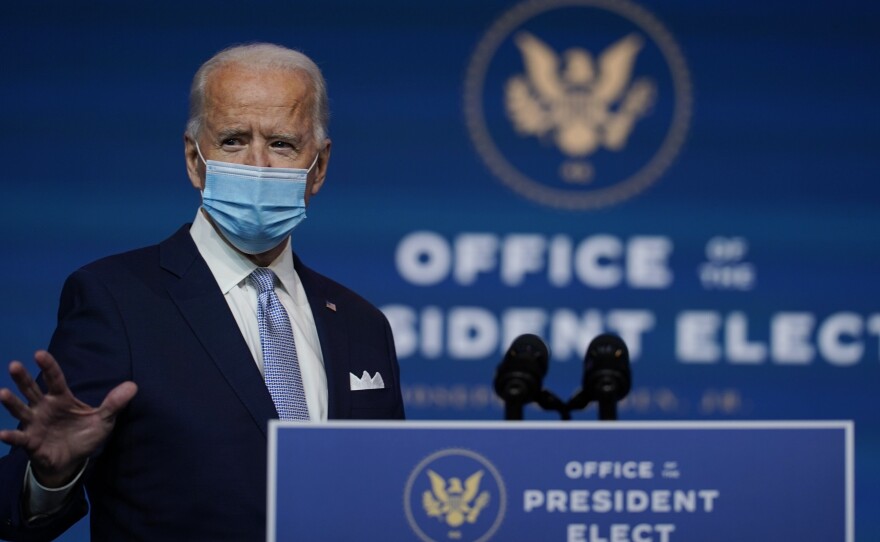Joe Biden will be sworn in as the 46th president this week. A new administration means a new approach to the existential threat of climate change, a threat the president-elect calls, “the greatest challenge facing our nation and the world.”
Biden's plan connects the environment with the economy. Here’s what it calls for: a 100% clean economy and net-zero emissions by 2050; infrastructure investments in transportation and energy production and distribution; rallying the rest of the world to meet the threat of climate change; taking action against fossil fuel companies and other major polluters who disproportionately harm low-income communities; and help for workers in transitioning to new, clean industries.
We checked in with a number of San Diego leaders and experts on the environment and clean energy for their reactions to the incoming president’s plan.
David Victor is a professor of industrial organization at UC San Diego and co-leader of UCSD’s deep decarbonization initiative. He says getting the United States back into the Paris Climate agreement is a critical first step.
“I think it's very important to keep in mind that climate change is ultimately a global problem. That the U.S. is 15% or so of global emissions and will be shrinking as our policies become more effective. So we have to find ways of working with other countries, that means starting with the allies from Europe, the UK government which is hosting the next big conference in November in Glasgow. That also means working with Brazil, where frankly the president has not been supportive of climate change policies. That means working first and foremost with China, the world’s largest emitter and in the runup to the Paris agreement, not so long ago it was the ability of the United States and China to work together that really framed what was possible in Paris and now the U.S.-China relationship is much more fraught, a lot more pressure and tension inside that relationship and so this is going to be a foreign policy problem, in addition to a national policy issue and I think its interesting that he’s assigned John Kerry to lead on the foreign policy side on climate change because John Kerry is someone that knows this issue extremely well and in particular knows how to develop the right relationships between the United States and China.”
Nicole Capretz is the founder and executive director of Climate Action Campaign, a San Diego nonprofit that has helped to get eight local 100% clean energy Climate Action Plans passed, including the city of San Diego’s plan. Capretz weighed in on Biden's 2050 goal.
“President Elect Biden has set this ambitious target of getting to net zero carbon by 2050 and while that’s a great first step and it's certainly a departure from where we’ve been the last four years, we’re (Climate Action Campaign) probably going to push for a more ambitious target and timeline of 2040 or 2035, and certainly we intend to do that at the local level, hopefully model what that can look like, but clearly this is progress and we’re excited to work with the president elect and his cabinet and everybody else to make real change happen.”
Ram Ramanathan, professor of climate and atmospheric sciences at Scripps Institution of Oceanography, explained what he likes about Biden’s climate plan.
“The most important thing is he has recognized the investment it’s going to need. I think he has committed trillions of dollars over the next five, ten years. So the first thing we need to recognize is we can’t fool ourselves thinking it's just going to happen, no it's not going to happen. It requires top-down policies, top-down investment, so that from the bottom up the industries, the private donors, private investors will join in. We need both. We need the top-down action. We need the investment. And then they need bottom-up movement. All the way starting from our kids in schools urging the adults to take action, to involvement from private foundations, involvement by industries, involvement by investors. All that is needed because we’ve delayed taking action so, so long.”
Terra Lawson Remer, a Democrat, is a newly elected San Diego County Supervisor. Lawson-Remer emphasizes the Biden plan calls for investment in reshaping the economy and transforming millions of jobs.
“Fundamentally the plan is focused on the kind of investments that we need to tackle this climate crisis and those investments are going to in their very nature shift our economy from an old economy thats been dependent on fossil fuels to a new economy that is in its very core dependent on renewable energy to power us for the next generation.”








